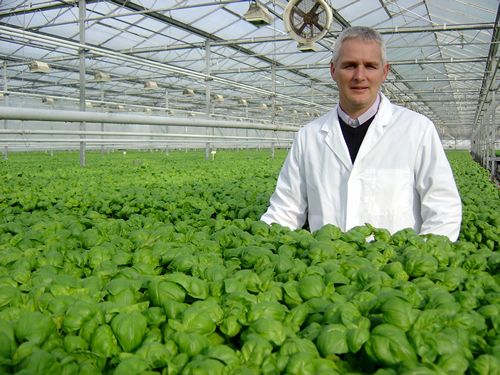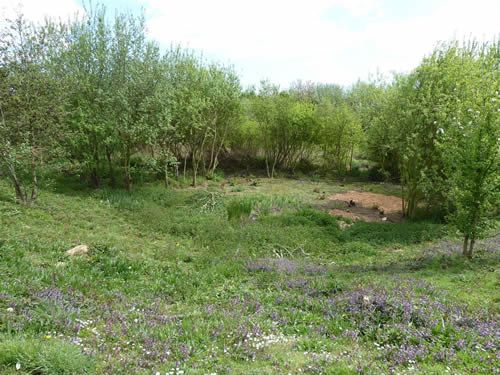
One of the country’s leading glasshouse growers of herbs, cress and tomatoes is the first of its kind to sign up to the Conservation Grade protocol, specifically designed to maximise yields of both crops and wildlife.
West Sussex-based VHB Herbs, a leading supplier of Fresh Herbs to the UK market worth £96 million. VHB Herbs has qualified for the protocol and can now feature the Nature Friendly Farming bee logo on selected lines of its products.
The company has run several wildlife projects recently as part of a wider ethical approach to growing, which eliminated the use of insecticides 14 years ago and instead uses beneficial insects to control pests. However, entry into Conservation Grade signifies a change of approach to proactively farming wildlife rather than letting it develop naturally explains technical director Chris Moncrieff.
"Retailers want suppliers who are improving their sustainability, and consumers are increasingly looking for products that will deliver specific benefits such as increased wildlife," he says.

"Becoming part of the Conservation Grade ’movement’ ticks those boxes for us because it delivers tangible, quantifiable results and has a strong consumer-facing brand.
"We’ve approximately six acres – 10 per cent of our total farm area – of managed wildlife land, which includes a water meadow and an indigenous tree area. These areas are now being farmed to provide habitats for animals such as grass snakes and stoats, and migratory birds like long tailed tits, as well as allowing rare types of rushes and sedges to grow. A number of wild orchids have also self-established recently."
He stresses that the increase in insect populations is one of the most important aspects of the scheme. "Although our crops are all under glass, we know the importance of encouraging populations of pollinators; we use bumble bees with all our tomatoes because they’re the least aggressive – so there’s less risk of employees being stung!"
In trials, the protocol resulted in a thirteen fold increase in bumblebees, as well as a 41 per cent increase in birds, an eightfold increase in butterflies, and a thirty fold increase in small mammals such as water voles within certain habitats on the farm. This was significantly higher than many results from conventional or even organic farming systems*.
Shelley Abbot of Conservation Grade says: "The nature-friendly farming approach offers food growers and the public a valuable way to invest in natural capital – rewarding farmers directly for deliberately stimulating wildlife."
VHB Herbs is part of the Vitacress Group and has two sites in West Sussex with around 230 full time employees working in 80,000m2 of glasshouses; between them, the two sites produce over 14 million fresh potted herbs and over 23 million packs of fresh cut herbs per year. The UK retail fresh herbs market is growing at around four per cent year on year in value terms. The top four bestselling lines are coriander, basil, flat leaf parsley and curly parsley.
VHB Herbs joins an increasing number of brands, including Allied Mills and Jordans, that are applying the protocol and will be looking at the option of adding the ’bee’ of the Nature Friendly Farming label on produce.
